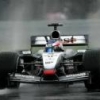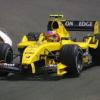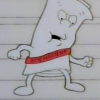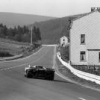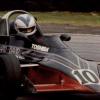- Jenson Button, 32, class of 2000
- Fernando Alonso, 31, class of 2001
- Kimi Räikkönen, 33, class of 2001
- Felipe Massa, 31, class of 2002
- Mark Webber, 36, class of 2002
Remarkably, all 5 drive for top teams (classing Lotus as top team). From the whole grid they are also the only ones on the wrong side of 30 apart from Heikki Kovalainen, 31, also seemingly about to be out of a job soon, and Timo Glock, 30.
These facts lead to a few obvious questions that are the purpose of this thread:
1) The big one - for how much further long can they remain in F1?
Mark Webber seems in pole position for the retirement race being aged 3 years older at least than the rest of the bunch, but still retains a top seat. Questions also always pop up about Kimi's motivation, who has already been retired for a short while and came back. Massa's performance has been intermitent and we've all questioned if he wasn't about to fall from grace, at least from Ferrari if not from F1. Nevertheless all could still easily remain performing at an acceptable level in F1 for many years.
2) How old can a F1 driver be these days anyway?
Schumacher and de la Rosa performing into their 40's would suggest a driver's career can last longer these days, we hadn't seen 40+ drivers for a very long time. Then again Schumacher is a special case being a 7-times champion, and de la Rosa wasn't properly evaluated being against a paydriver in poor machinery. Another argument for experience is just how limited testing is these days, so drivers who have a decade of F1 will have a huge advantage over the youngsters. These days you really need lots of time to figure out F1, look for example at Hulkenberg - a junior series freak superchampion - who only really came good after 1 year in racing, 1 year in free practices and another half a year in racing.
Then again now Schumacher and de la Rosa are gone, the grid for next year now suddenly looks REALLY young. Webber is the only one older than 33! Surely it's not a coincidence only 1 driver out of 22 is older than 33, it means youth is still at a premium in F1 too. Another striking fact is that the 5 drivers bunch we're looking at here, the oldest and more experienced of the grid, is made of 3 champions and 2 near-champions. That's means only the very best of their generation remain, all others have been ditched!
What's up with all of this then? I'm getting conflicting conclusions here. Youth or experience? Perhaps what F1 teams are after the most is drivers who get experience from a young age - hence the reason we're now regularly getting new kids entering at the ages of 20 and 21...
I also wonder how much a part of the game is the sheer pressure people put in over the oldest guy to retire. First everyone was on the back of Trulli pressuring him to leave. Then we moved on to Barrichello. Now it's Webber's turn, the press constantly questioning him. Should we... refrain from opening threads like this
3) These are 5 top seats we're looking at here.. so 5 top seats up for grabs once they're gone. Who will replace them then?
This is a tough one to answer since I believe apart from Webber it's unlikely our guys will retire soon. The further in the future these replacements happen, the hardest it is to predict them as they could very well be filled by obscure drivers currently in the junior series or even in karting!
However with Alonso, Massa, Button and Kimi all of very similar ages and experience it's not inconcievable they could all retire or leave open their top seats in a short period of time. That's a quick complete revolution at the top of F1 waiting to happen. Whether this happens in 3, 4, 5, 6 or 7 years time it could mean 4 new drivers getting their lucky break at almost the same time, and everyone from the new generations will want to be best placed to do that.
Another related, interesting and perhaps even more pertinent question is who becomes a top driver, potential champion then. Other than our lot only Hamilton and Vettel are established as top drivers who no-one else coming close really, but, well, there's always space for more than 2 stars in F1. Even in the glory duels era of Senna and Prost, there was space for Nigel Mansell.
Frankly from the current grid I'm only seeing Hulkenberg with the potential to step up to that level and even then I'm doubtful. There was also Kubica but sadly don't think he's coming back. Some have also mentioned Pérez and Grosjean - who already are at top seats so won't be occupying the new vacant seats at least -, I am not convinced. My guess is someone new will come in. And whilst talent is talent and that can overcome timing, I think whoever enters F1 in 2 to 4 years time will be best placed to peak at the time our bunch of 5 elders says goodbye. Pay attention to people starting their careers at the moment on levels like FRenault 2.0, F3 and GP3 then...
4) Is the present the worst possible time to be peaking as a driver?
In short, yes. That is my opinion at least. Our 5 guys are either at their peak or not too far past it and will remain there for a while yet - and there's Hamilton and Vettel to fight against too. It's hard to think of many drivers that are getting disadvantaged by this situation but the one that comes to my mind is Nico Rosberg. Born in another slightly earlier era he could've had a career along the lines of a Coulthard or a Barrichello, yet with this level of competition he finds himself stuck as a #2 in a team who is unlikely to make it into the top 3 next year. A guy like Timo Glock certainly could've been in a far more competitive team too!








